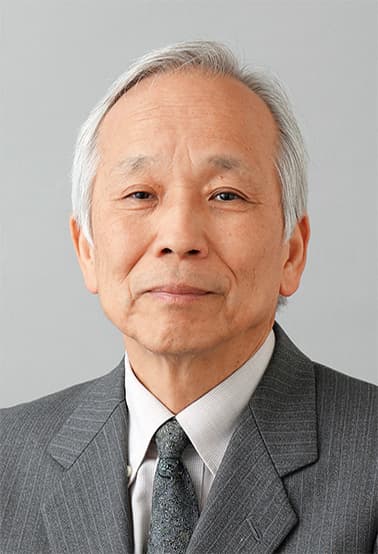
Profile
- Bachelor of Engineering, Kyoto University, Graduate School of Engineering, Kyoto University (Department of Electronics), Doctor of Engineering
- Professor Emeritus, Kyoto University; Former President, Graduate School of Informatics, Kyoto University, Former Professor, Toyohashi University of Technology,Former Professor, Kwansei Gakuin University, Visiting Researcher, University of Illinois, etc.
- Fellow of ACM, Institute of Electronics, Information and Communication Engineers, Japan Society of Applied Mathematics and 4 other academic societies
- The Operations Research Society of Japan, the Scheduling Society, and two other honorary members of the Society
Responsible Subject
- System Theory
- Honors Master Thesis
Field of Specialization
- Algorithms, Computational Complexity, Optimization and Its Application
Business Performance
Awards
- The Yonezawa Award of the IEICE (Institute of Electronics, Information and Communication Engineers)
- Operations Research Society of Japan Literature Award (Operations Research Society of Japan)
- Sawaragi Thesis Award (System Control Information Society)
- IEICE Paper Award (Institute of Electronics, Information and Communication Engineers)
- Editor's Choice Award (5 volumes) (Discrete Applied Mathematics)
- Operations Research Society of Japan Award for Excellence (Operations Research Society of Japan)
- The Japan Association for Mathematical Sciences Academic Award (JAMS Prize) (Japan Association of Mathematical Sciences)
- The Japan Society of Scheduling Science Award (Institute of Scheduling)
- Kondo Award (Operations Research Society of Japan)
- Institute of Electronics, Information and Communication Engineers Award for Achievement (Institute of Electronics, Information and Communication Engineers)
Academic papers, International Conference Papers, etc.
- Ibaraki, Imahori, Nonobe, Sobu, Uno, Yagiura: An iterated local search algorithm for the vehicle routing problem with convex time penalty functions, Discrete Applied Mathematics, Vol. 156, pp. 2050 -2069, 2008
- Kataoka, Ibaraki "One-Way Proposal for Laboratory Assignment and Its Mathematical Consideration", The Operations Research Society of Japan, Japanese Journal, 51, pp. 71, -93, 2008.
- Matsumoto, Miwa, Ibaraki: Scheduling of corrupted paper production, European Journal of Operational Research, Vol. 192, pp. 782 -792, 2009
- Hashimoto, Ezaki, Yagiura, Nonobe, Ibaraki, Lokketangen: A set covering approach for the pickup and delivery problem with general constraints on each route, Pacific Journal of Optimization, Vol. 5, pp. 185 -202, 2009
- Umetani, Yagiura, Imahori, Imamichi, Nonobe, Ibaraki: Solving the irregular strip packing problem via guided local search for overlap minimization, ITOR (International Transactions in Operational Research), Vol. 16, pp. 661 -683, 2009
- Ibaraki, A personal perspective on problem solving by general purpose solutions, ITOR (International Transactions in Operational Research), to appear
- Accumu | Kyoto Computer Gakuin Alumni Association bulletin
In addition, approximately 400 papers
Books
- Nagamochi, Ibaraki, Algorithmic Aspects of Graph Connectivity, Cambridge, 2008
- 'Mathematics of optimization', Kyoritsu Publishing, 2011
- 'Algorithms and Data Structures in C', Aum Inc., 2014
In addition, approximately 10 books